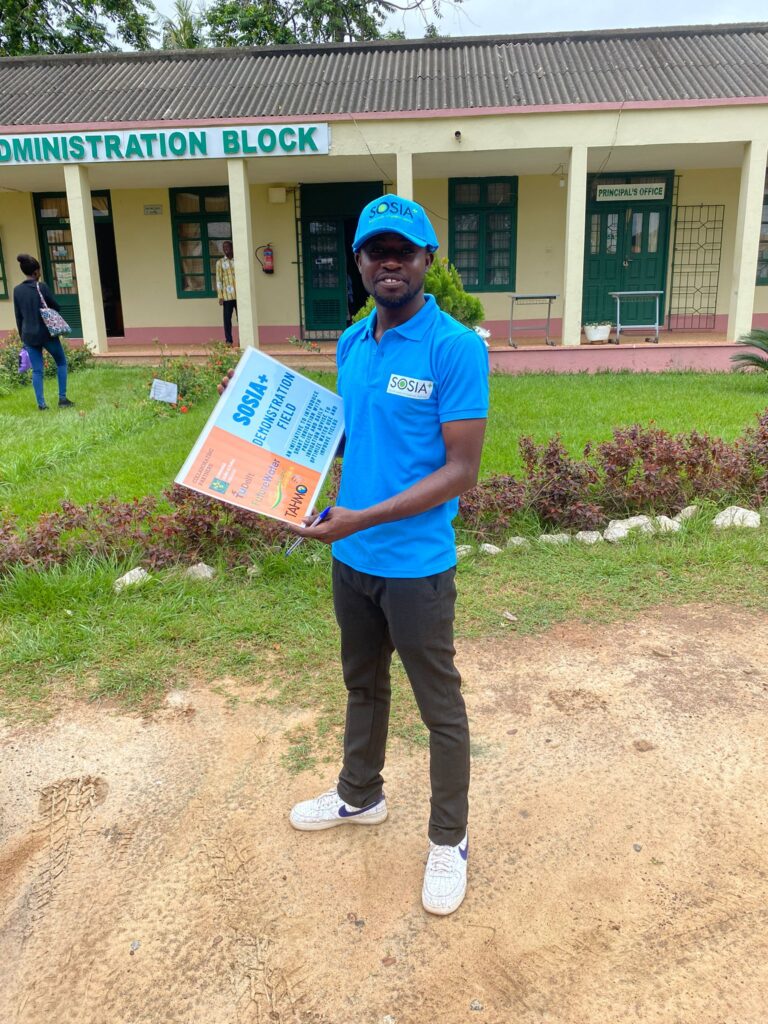For the development of SOSIA+, a smart irrigation tool tailored to small-scale commercial farmers, FutureWater joined forces with Holland Greentech, TU Delft, Stichting TAHMO, and the Kwadaso Agricultural College (KAC). The project is co-funded by Netherlands Enterprise Agency (RVO) partners for water.
The SOSIA+ project aims to optimize irrigation practices through the use of satellite and weather station data, creating an comprehendible advice that is sent to the farmers’ phone everyday. The farmers now receive daily irrigation advice tailored to their specific needs. This personalized guidance not only helps them conserve water, energy and money but also optimizes their crop yields.
Last month marked the official start of the irrigation advisory trials at Kwadaso Agricultural College, bringing together several project members and the lead farmers from the region. The start of the trials means that the irrigation advisory tool is now tested with 10 lead farmers around Kumasi and Wenchi, which we had the privilege to visit. These farmers have been carefully selected to be a part of this initiative. During the visits, we conducted experiments in the fields equipped with drip irrigation systems, to check the operational quality.
To ensure the success of this project, the Holland Greentech team and KAC students will provide invaluable support through monitoring and guidance. Additionally, two students from Wageningen University & Research will also be joining the effort.
The SOSIA+ project is not just about irrigation; it’s about empowering Ghanaian farmers with the tools and knowledge they need to thrive in an ever-changing agricultural landscape. Our collaboration with dedicated partners and the unwavering commitment of these lead farmers in Kumasi and Wenchi give us hope for a more sustainable future for farming in Ghana.
As we continue this journey together, we remain steadfast in our mission to transform agriculture through innovation, data, and cooperation. Together, we can make the SOSIA+ tool a game-changer for small-scale commercial farmers in Ghana, and in doing so, contribute to food security and sustainable farming practices across the region.


